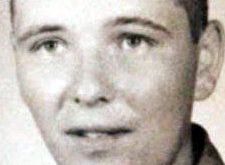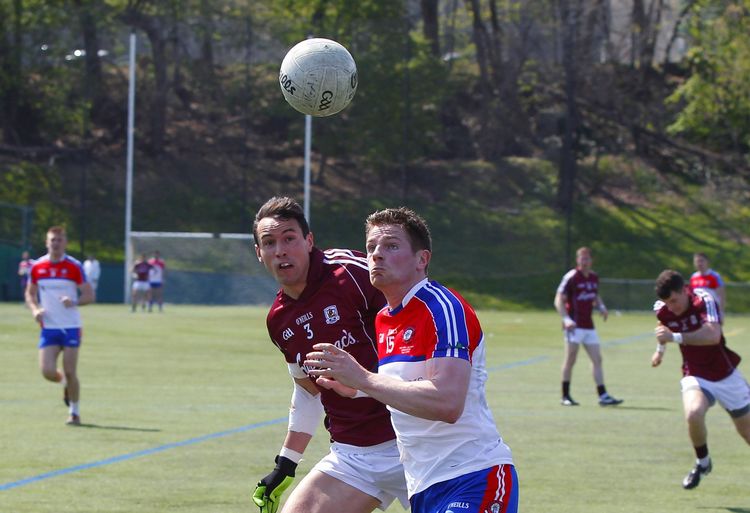Irish graduates value social-work experience with Chicago seniors
By Peter McDermott
CHICAGO--A decade ago, Sheila McMackin took on a cultural exchange student who would add a new string to the bow of Wellspring Personal Care. The reverberations are still being felt 4,000 miles away.
"We hired him as a caregiver," said McMackin, whose company provides homecare to older and disabled adults in the Chicago metropolitan area.
At the end of his summer stint, courtesy of a J-1 visa, the University College Cork student asked, "I wonder if I could come back here to do my field placement?"
"I said 'yes,' not thinking he would follow up on it," McMackin recalled. "Well, sure enough, the following year I got a call and he said, 'I'm ready now.'"
Ireland’s changing support for eldercare
The student wanted to start the following January as part of his master's degree in social work. He did, and in the years since has been followed by 24 graduate students from Ireland who've done placements with Wellspring. Four out of five of them, McMackin estimated, found employment as social workers in their homeland after graduation.
Until now, the Wellspring director said, geriatric care has not been a feature of social work in Ireland: "The emphasis is on probation and child welfare. The bulk of government funding is still in those areas."
However, she explained, "Field practice is a mandatory part of social work training, and Irish schools are very supportive of international placements. It's typical. In any given semester they've got students going to Africa, to the Philippines, going all over the world.”
After contacting UCC’s social work staff and examining their handbook, McMackin said, “we crafted a placement that met what the students were expected to learn."
Although funding in Ireland is not directed at social work for seniors, it was a government initiative that enabled McMackin to expand the Chicago program.
Previously, the Irish government had taken action to address the plight of marginalized, single-male immigrants in Britain, large numbers of whom found work in England in the years following World War II. Many became alienated or otherwise detached from their families. "There was a huge amount of unmet needs in England," McMackin said.
After 40 years, though, it was apparent that Irish seniors faced some of the same problems in America. In McMackin’s telling, "The Irish Abroad Unit of the Irish Department of Foreign Affairs said, 'We want Irish immigrant centers to focus in on elderly issues.’”
Learning to help senior immigrants
Four years into the Wellspring placement program, McMackin met with Chicago Irish Immigrant Support and ultimately with officials from Ireland’s Department of Foreign Affairs.
"We expanded [the program] to include immigration issues, and working with senior Irish immigrants. But money was an issue. Students were coming on their own dime," she said. "I had barely anything to offer them. Through the consulate here, we were able to get a stipend for the students to help some of the costs of their coming here.”
McMackin emphasized, "The Irish government has been wonderful to us. The DFA has been amazing. You walk into their offices with this great idea and they go, 'Hmm. Okay.' They're incredibly supportive. So it's humbled me, a lot."
The program now also accepts students from Trinity College, Dublin, and the National University of Ireland, in Galway. "We have two students in the fall, and two in the spring, generally," McMackin added.
She believes that the program helps prove the utility of social work outreach with older adults. "There are aspects to what we do that I think are very powerful. We are very proud of our work," she said. "I think also that the universities really appreciate it."
Brendan Young, who is doing a masters degree in social work at UCC, completed his placement in Chicago in December. "It was a fantastic experience," he said.
Before starting his primary degree in social science, also at UCC, Young worked for a year as a youth advocate and outreach worker in his native Limerick City. He said his plan was always to study as many areas as possible. So for him, the Chicago placement, which involved classroom work as well as time with Wellspring and CIIS, was a valued opportunity.
"I was working with a different demographic in Chicago," he said.
"The American social work system is very different [from] the Irish one in some ways," said fellow UCC master's student Rob O'Connor, who did his placement at the same time. "It was fascinating for me to be able to be exposed to that.”
“Chicago itself is an amazing city -- so much diversity and friendliness," O'Connor added. "It really made us feel at home."
Learning from elders’ American stories
McMackin noted, "The students help to run the weekly senior groups, which are activity based – opportunities to talk, to learn. There are educational topics that they cover."
Last year, the Chicago students heard older adults, now ages 75-85, who had left Ireland in their youth or middle years, in a reminiscence group at CIIS, the Irish support center.
For O'Connor, the Chicago reminiscence group provided a concrete example of how work with older adults can allow social workers to incorporate therapeutic skills in a group situation, while still focusing on a senior’s individual experience.
He emphasized, “Their history is so rich and diverse that it exposes you to a range of human relationships and dynamics that cannot be learned from any social work text. Their stories and spirit are very contagious.”
“The basic idea of this type of work is that people can retell the narrative of a past event and view it now with more experience and perhaps reevaluate it,” he said.
O’Connor stressed how important American training will be for Irish social workers returning home: "The fact that work with older adults feels like it is a developing area in Ireland is exciting, as there is room to develop creative therapeutic practices such as these."
Different systems, but basic similarities
Because of economic austerity, though, new graduates will not have many opportunities available to them in Ireland and this will blunt the impact of American influences on eldercare in the short term. Said O’Connor: "I am actually looking at the U.K. at the moment and the possibility of working over there for a few years."
McMackin would love it if more of her Irish students were able to return to Chicago to get more experience working fulltime in the community.
She said of U.S. rules, "Our immigration laws are so crazy."
But America's loss is Canada and Australia's gain, as those countries are attracting Irish social work graduates. "They're easier to get into and they have a need," the Wellspring founder said.
Paul Dowling, who did his placement in 2008, is the one student who made it back to Chicago, where he is now the director of social services at CIIS.
"Geography plays a big role. At home, families tend to have somebody close by,” such as a parent or grandparent, he said. "It's more of a family concern."
The social safety net is more elaborate, too, in Ireland and user friendly.
"Seniors do have it more difficult in lots of ways in America," said Dowling, who is from Gorey, Co. Wexford.
He is struck by how many forms older adults must fill out, which is often not an easy chore, he said, for people who are advanced in years.
In Ireland, seniors are entitled to travel free on public transport, including intercity trains, while other services and programs are at reduced rates -- although budget cuts due to the austerity policy have been chipping away at some of them. Generally, one has to apply and qualify just once.
"In the U.S., you have to apply for things again every year, or every second year," Dowling said.
For professionals, the Irish state is still the major employer of social workers and the placement students in Chicago found the concept of a private social-work company an alien one at first. It caused some "ethical quandaries" for County Kilkenny native O'Connor, who believes that the market is often at the root of social ills.
However, he said, working with Wellspring and having case discussions with McMackin, and exploring the National Association of Social Workers code of ethics, “really helped me to understand the ethics that underpin social work in America and how these are the same as in the Irish system."
More generally, O'Connor liked that mental-health training for social workers was an "overarching focus" of course work in America.
Strong shoulders and deep commitment
For her part, McMackin wasn't prepared for some cultural differences in the exchange program’s early years.
"I think Irish Americans, not all certainly -- but we have this image, a vision, of what it means to be Irish," she said. "We think there's going to be this instantaneous bond with the people of Ireland, which is the farthest thing from the truth. I've learnt to understand that we're different, that the cultures are different. There was a lot that I needed to learn.”
She observed, "Americans are louder, probably more assertive. I think while the Irish are very personable and sociable, they tend to be a little more -- probably appropriately so -- introspective. It takes a lot longer to actually know someone from Ireland."
Whatever their national background, a social worker must have certain qualities, McMackin believes.
"You need to have empathy. You have to have a strong sensibility," the Wellspring founder said. "It can be hard dealing with people, with issues and the bad things that happen.”
Furthermore, McMackin asserted, "You have to have a pretty strong set of shoulders. And I think you have to have a deep commitment to wanting to help humankind."
This, with the sidebar below, is the first of a series of three articles written about Irish-American seniors as part of a MetLife Foundation Journalists in Aging Fellowship, a project of New America Media and the Gerontological Society of America.
Reweaving lost threads of past
During Rob O’Connor’s placement experience at Wellspring, he helped organize a “reminiscence” group at Chicago Irish Immigrant Support.
“I always liked the description of a reminiscence group as reweaving the lost threads of the past,” said the University College Cork graduate student.
“Reminiscence groups use many different forms of sensory stimulation as different senses often stimulate different memories. As such, one of the activities that we designed focused on traditional Irish music and asking the older adults what songs reminded them of their past.
“However, we did not realize that Irish music would act as a cultural catalyst to open the doors to a larger conversation and was such a big part of the older adults’ lives when they first came to America and remains so,” he said.
“A personal story that has stayed with me is actually a happy one told by a woman I’ll call ‘Delia.’ It was how she met her husband,” O’Connor remembered. “Delia recounted the narrative of how she was a nurse and came to America from the West of Ireland to work in a hospital in Chicago. She spoke finding a sponsor in America and of the great excitement she felt. When she was established in Chicago, she and a group of nurses went to the dancehalls every weekend to hear the Irish showbands play after a long week’s work.”
He continued: “Delia painted a picture of dancing, laughter, colors and craic [Irish word for fun and banter]. It was very vivid and she had the attention of the whole table as they nodded along remembering their own experiences.
“She finished the story by saying: ‘Over 50 years later and we’re still dancing.’ Everyone laughed and I’ll never forget the smile on her face as she looked around the room and tried to catch her husband’s eye who was apparently sitting at another table. I’d never known they were a couple,” O’Connor said.
– Peter McDermott










